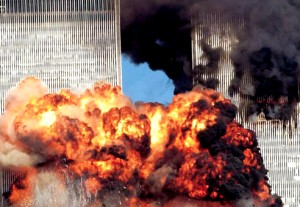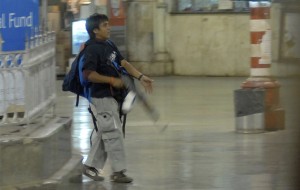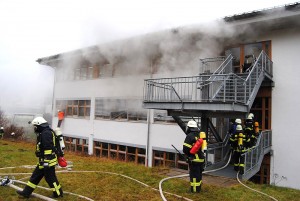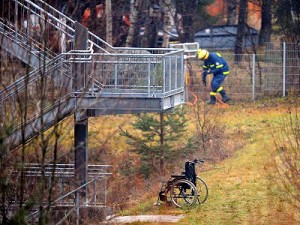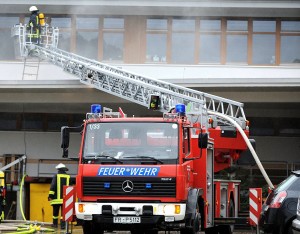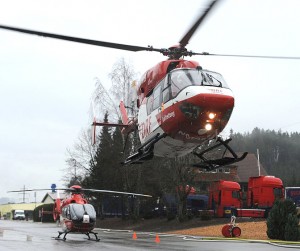2014-11-05: ISO TC 92: ‘Fire Safety’ is a long-established Technical Committee within the International Standards Organization (ISO) … www.iso.org/iso/home/standards_development/list_of_iso_technical_committees/iso_technical_committee.htm?commid=50492 … and down through the many years of its existence, since 1958, it has laboriously constructed a robust foundation which has facilitated the modern evolution of Fire Science and Engineering and the development of many standard fire safety practices and procedures around the world.
BUT … and in spite the existence of ISO/IEC Guide 71: ‘Guidelines for Standards Developers to Address the Needs of Older Persons and Persons with Disabilities’ (a weak document which is badly in need of revision and updating !) …
Recently, having examined some draft standards being processed through ISO TC 92 … I have become very tired of the blatant incompetence … and lack of care and concern merging with feigned ignorance and/or stubborn resistance, within the Technical Committee, when it comes to the issue of ‘disability’ … in other words, the major matter of the real fire safety of vulnerable building users and occupants, i.e. people with activity limitations, in real buildings.
SO … a few days ago, I wrote the following e-mail message to a Working Group Chairperson (who shall remain nameless, because this same problem pervades the whole TC) …
.
Dear X,
With regard to All Aspects of the WG’s Work … one issue, in particular, sticks out like a sore thumb … how you treat ‘disability’. There is no clarity here, only confusion. There are no precise terms, only a garbled use of language and concepts.
Please allow me to suggest, with accompanying explanations, a suitable and necessary path forward.
I will circulate this e-mail message separately within ISO, and beyond.
Concerning Normative References … reference must be made to …
ISO 21542 (2011): ‘Building Construction – Accessibility & Usability of the Built Environment’
Within this document, Accessibility is understood to mean the full cycle of independent building use, in an equitable and dignified manner … and to include the approach, entry to and use of a building, egress during normal conditions and removal from the vicinity of the building … and, most importantly, evacuation during a fire incident to a ‘place of safety’ which is remote from the building.
Texts relating to ‘fire safety’ have been incorporated into the main body of this International Standard. It is, however, just a small beginning. Much work remains to be done.
Accessibility Design Criteria, as described in ISO 21542, must now be applied to the design and maintenance of all fire evacuation routes, fire safety related signage and fittings, etc., etc.
Use of the word escape, in any context, is strongly discouraged.
Concerning Terms & Definitions …
People with Activity Limitations: Those people, of all ages, who are unable to perform, independently and without aid, basic human activities or tasks – because of a health condition or physical/mental/cognitive/psychological impairment of a permanent or temporary nature.
Attached, please find the FireOx International ‘Fire Safety for All’ Matrix … which illustrates how the separate pieces, including ‘disability’, fit together.
Contraflow: Emergency access by firefighters or rescue teams into a building and towards a fire, while people are still moving away from the fire and evacuating the building.
Concerning Building User/Occupant Numbers & Provision … ‘token’ is not only entirely unacceptable, it is a clear case of professional negligence …
And why, suddenly, all of these ‘musts’ ??
Cogently mandated in the United Nations Convention on the Rights of Persons with Disabilities (CRPD) … the UN CRPD’s principal aim is to ensure that the Built, Social, Economic and Virtual Environments are sufficiently ‘accessible’ to permit a vulnerable and major population group in all of our societies to enjoy the fundamental freedoms and human rights set down in the Universal Declaration of Human Rights (1948).
The language of the Convention is always very robust and very direct: ‘States Parties shall …’
Also attached, please find a United Nations Global Map showing the status of Convention Ratification back in July 2014. At the time of writing this e-mail message, 151 Countries have ratified the UN CRPD.
Full and Effective Accessibility of the Built Environment is a human right. Adequate provision must be made for people with disabilities to use all buildings … not just some buildings … and certainly not just limited parts of a building !
In practice, people with disabilities must be included in all practice evacuation drills … and they must be included in all activities related to ‘fire safety’ and/or necessary to prepare for safe evacuation.
Furthermore … because Electronic, Information and Communication Technologies (EICT’s) now serve a function which is critical, during a fire incident, for the safety of all building users and firefighters, property protection, minimizing environmental damage, and sustainability … they must have a user interface which is Accessible for All … from both ends.
With regard to ‘adequate’ provision … please find attached the 2010 USA Disability Statistics … which indicate:
- Minimum Reasonable Provision for People with Disabilities in a Building … 10% of User/Occupant Population ;
- Minimum Reasonable Provision for People with Activity Limitations in a Building … 15% of User/Occupant Population.
The numbers of people with disabilities in developing and the least developed economies far exceed numbers in developed economies !
Best wishes for the success of your meeting in Sydney.
C.J. Walsh – Consultant Architect, Fire Engineer & Technical Controller.
.
.
END
